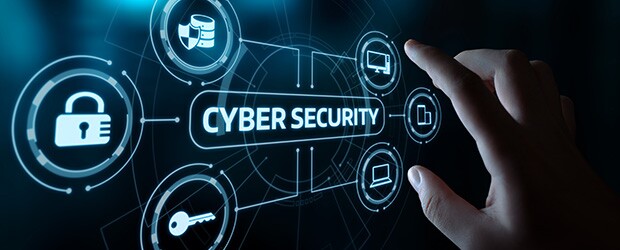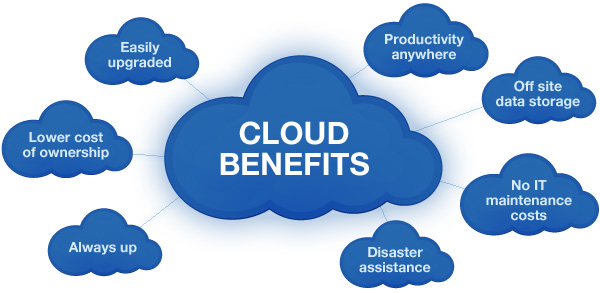Explaining the importance of cybersecurity and Stay safe online
Exploring the importance of cybersecurity cannot be overstated. Protecting your personal data, financial assets, and online privacy

In today's digital age, where our lives are increasingly intertwined with technology, Importance of Cybersecurity has become a paramount concern.
From personal information and financial transactions to critical infrastructure and national security, the digital realm is teeming with potential vulnerabilities. As we navigate this digital landscape, it's essential to understand the importance of cybersecurity and learn how to stay safe online.
Understanding the Importance of Cybersecurity
Cybersecurity refers to the practice of protecting computer systems, networks, and data from theft, damage, or unauthorized access. It encompasses a wide range of activities, including the implementation of robust security measures, the monitoring of network traffic, and the development of strategies to respond to cyber threats. Here are some reasons why cybersecurity is of utmost importance:
1. Protection of Personal Data
In the digital age, our personal information is more valuable than ever. From social media profiles to online shopping accounts, we store a treasure trove of personal data on the internet. Cybercriminals are constantly seeking to exploit these vulnerabilities to steal identities, commit fraud, or engage in other malicious activities. Effective cybersecurity measures can help safeguard this sensitive information.
2. Financial Security
Online banking and e-commerce have made financial transactions more convenient than ever. However, this convenience also comes with risks. Cybercriminals target financial institutions and individuals to steal money and financial information. Strong cybersecurity practices are essential to protect your financial assets and ensure the security of online transactions.
3. Privacy Protection
Maintaining personal privacy in the digital age is a significant challenge. Cybersecurity helps ensure that your online activities remain private. Without proper protection, your web browsing habits, online communications, and personal files may be exposed to prying eyes.
4. Safeguarding Critical Infrastructure
Cyberattacks can target critical infrastructure such as power grids, water treatment facilities, and transportation systems. A successful attack on these systems can have devastating consequences, affecting public safety and national security. Robust cybersecurity measures are essential to prevent such attacks and protect vital infrastructure.
5. Business Continuity
For businesses of all sizes, cybersecurity is crucial for ensuring continuity of operations. Cyberattacks can disrupt business activities, lead to financial losses, and damage a company's reputation. Implementing cybersecurity measures helps mitigate these risks and ensures that businesses can continue to operate even in the face of cyber threats.
6. National Security
In an increasingly interconnected world, national security is closely tied to cybersecurity. State-sponsored cyberattacks and cyber espionage pose significant threats to a nation's security interests. Protecting critical government systems and infrastructure is essential for safeguarding national security.
Tips for Staying Safe Online
Now that we understand the importance of cybersecurity, let's explore some practical tips on how to stay safe online. By following these guidelines, you can significantly reduce your vulnerability to cyber threats:
1. Use Strong and Unique Passwords
Passwords are your first line of defense against unauthorized access. Create strong, unique passwords for each of your online accounts. A strong password typically includes a combination of uppercase and lowercase letters, numbers, and special characters. Consider using a password manager to help you generate and store complex passwords securely.
2. Enable Two-Factor Authentication (2FA)
Two-factor authentication adds an extra layer of security to your online accounts. With 2FA, even if someone obtains your password, they won't be able to access your account without a second form of verification, such as a text message code or a biometric scan. Enable 2FA wherever possible to enhance your online security.
3. Keep Software and Devices Updated
Software updates often contain security patches that address known vulnerabilities. Ensure that your operating system, web browsers, and applications are regularly updated to protect against potential exploits. Additionally, keep your antivirus and anti-malware software up to date to detect and remove threats.
4. Be Cautious with Email and Messages
Email phishing and malicious messages are common tactics used by cybercriminals to trick users into revealing personal information or downloading malware. Be cautious when opening emails or messages from unknown sources. Avoid clicking on suspicious links and don't download attachments from untrusted senders.
5. Secure Your Wi-Fi Network
Your home Wi-Fi network is a potential entry point for cyber attackers. Change the default router password, enable WPA3 encryption, and use a strong network password. Additionally, consider setting up a guest network for visitors to ensure they can't access your sensitive data.
6. Be Mindful of Social Media Sharing
Cybercriminals often gather information from social media profiles to craft convincing phishing attacks or to target individuals. Be cautious about the information you share online, and review your privacy settings to control who can see your posts and personal details.
7. Regularly Back Up Your Data
Regularly back up your important data to an external device or a secure cloud service. In the event of a ransomware attack or data loss, having backups ensures that you can recover your files without paying a ransom or suffering permanent data loss.
8. Educate Yourself About Cyber Threats
Staying informed about the latest cyber threats and trends is crucial. Knowledge is your best defense against cyberattacks. Consider taking online courses or attending workshops to improve your cybersecurity awareness and skills.
9. Install and Use a VPN
A Virtual Private Network (VPN) encrypts your internet connection, making it more challenging for cybercriminals to intercept your data. Use a reputable VPN service when connecting to public Wi-Fi networks or when you want to enhance your online privacy.
10. Report Suspicious Activity
If you encounter suspicious online activity or believe you've been a victim of cybercrime, report it to the appropriate authorities or organizations. Reporting helps identify and take action against cybercriminals and can prevent further attacks.
In an increasingly digital world, the importance of cybersecurity cannot be overstated. Protecting your personal data, financial assets, and online privacy requires diligence and awareness.
By following best practices and staying informed about emerging cyber threats, you can significantly reduce your risk and enjoy a safer online experience.
Remember that cybersecurity is a shared responsibility, and collectively, we can build a more secure digital future. Stay safe, stay vigilant, and protect your digital life.
What's Your Reaction?
















